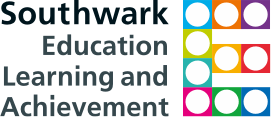SENCO support
Support for current and aspiring SENCOs
Special Educational Needs Coordination
Southwark Primary SEND Hub
The Alfred Salter Primary School Hub offers support to all schools in Southwark and focuses on the inclusion of children with SEND in the mainstream classroom.
The Hub hosts half termly in person community events for SENCOs to discuss best practice, troubleshoot issues and host external speakers. To register for the next Hub event click here
Hub Lead: Adam Bridle thehub@alfredsalter.com
Hub LA Adviser: Sarah Redman Sarah.Redman@southwark.gov.uk

Southwark Secondary SENCO forum
An opportunity for secondary SENCOs to stay in touch with colleagues and developments in Southwark, feedback to the LA, solve problems and share good practice. The secondary forum will meet once a term:
Autumn term: 19th Novermber, 2024
Spring term: 10th March, 2025
Summer term: 29th April, 2025
For further information and to confirm your place contact Mabina.Zinga@southwark.gov.uk
CENMAC
Assistive Technology in Education
CENMAC is a team of specialists who support children and young people experiencing barriers to learning and/or communication to access the curriculum and/or to communicate using assistive technology.
Thursday Thirty free live online training & information sessions run throughout the school term 15.30 to 16.00 on Thursday afternoons.
To stay up to date on information around assistive technology and SEN provision sign up to the CENMAC newsletter.
Southwark CENMAC Referrals
Form one covers the main areas of the SETT framework: Student, Environment, Tasks and Tools. This is for assistive technology to support learning.
Form two covers part of the AAC (augmentative and alternative communication) framework. This is for individuals with communication disorders who have difficulty with traditional spoken communication.
Referral criteria
-
School has used its own resources and expertise to show what has already been tried / strategies put in place and then reviewed (e.g. IEP).
-
Another professional (SaLT, OT, VI, HI, AST, EP) supports the referral or it is identified as possible provision in the child/young person’s EHC plan.
Please refer to Top Tips and Southwark’s guidance to schools
Step 1: Download Referral Form 1 (AT) or Download Referral Form 2 (AT + AAC) and save it.
Step 2: Complete all the questions as fully as possible (please DO NOT leave any fields blank). You can use the visuals to support student questions to support conversations with your child/young person in the completion of Part 1. If the child or young person is multilingual, you should also complete the rating scale and questions for multilingual students
Step 3: Save the completed form.
Step 4: Email the completed form along with the supporting information requested (IEP, OT, SALT, VI, HI and handwriting/drawing sample as applicable) to cenmac@southwark.gov.uk
Part-time Timetable Guidance
DfE guidance on part-time (also known as reduced) timetables was recently updated as part of the new version of 'Working together to improve school attendance' See the Southwark part-time timetable guidance and template for SENCOs below.
Part-time timetable template form
SENCO - National Professisonal Qualification
The NPQ will become the mandatory qualification for SENCOs from September 2024. This will replace the NASENCO qualification. The SEND Regulations 2014 have been updated and come into effect from 1st September 2024
Southwark LA is able to offer all SENCOs working in the borough the opportunity to complete the NPQ from 2024 onwards through the SEND Hub. The award will be delivered by Adam Bridle, Hub lead in partnership with LSTH - London South teaching Hub. Any provision that is interested in registering for the 2024/25 cohort and beyond should contact Adam Bridle, Deputy Headteacher at Alfred Salter Primary School: thehub@alfredsalter.com
Graduate Taught Programmes
The Institute of Education (IOE) is a world leading centre for research and teaching in education. In 2022 they were ranked first in the QS World University Rankings for the ninth year running. They offer a range of taught graduate programmes with a specific focus on SEND.
Institute of Education courses for SENCos
SEND identification, progress and outcomes in Southwark schools
The outcomes for young people with SEND in Southwark schools are good when compared with similar young people across the country. The DFE have recently produced a local area SEND Report presenting the statistics on SEND available compared to inner London averages.
The most recent SEND comparative data set is available upon request from Sarah Redman, Senior Adviser for SEND Sarah.Redman@southwark.gov.uk
Southwark schools vary widely in size and context. The proportion of pupils/students identified at SEN support varies from well above the inner London mean to well below. Please click on the link for the latest DfE SEND identification data for Southwark Schools. The SEN support interactive dataset and the EHC interactive dataset give a national view of the identification, progress and achievement of pupils/students at SEN support and EHC. The datasets cover:
- Outcomes at the end of the Early Years Foundation Stage
- Year 1 phonics test
- Reading, Writing and Maths at the end of Key Stage 1
- All headline measures at the end of Key Stage 2 and Key Stage 4
-
SENCO support
Information and support for SENCOs in Southwark

